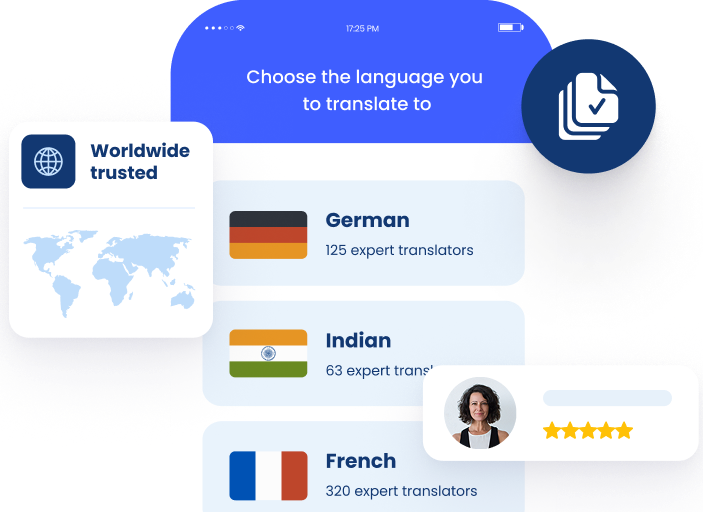Can You Bill Insurance for Interpreter Services in Healthcare Settings?
In the United States, the Federal law requires you to offer qualified medical interpreters to patients with Limited English Proficiency (LEP). However, securing payment for these services is inconsistent and often confusing. Medical interpreter services can cost $45 to $150 per hour or $2 per minute for telephonic sessions. In many cases, this exceeds the reimbursement for the medical visit itself.
Failure to provide a qualified interpreter has led to severe medical errors and costly litigation. In one case, an insurer paid $2.3 million in damages and $2.8 million in legal fees. This shows the importance of understanding how and when to bill insurance for these services. In this guide, we explain when interpreter services can be billed, how payer policies differ, and the steps you can take to protect both your compliance standing and your financial stability.

Situations Where Interpreter Services can be Billed to Insurance
The ability to bill for interpreter services is driven almost entirely by the patient’s insurance coverage and the specific Medicaid policy in your state, not by whether the appointment is in-person or remote. Federal law requires that you provide access in all clinical contexts, but payment depends on the payer.

In-person medical appointments
Private insurance and Medicare rarely allow separate reimbursement for in-person interpreter services. These costs are usually treated as operational overhead.
As of 2024, only 14 states and the District of Columbia had Medicaid policies that directly reimburse providers. For example, Minnesota’s Medicaid program (MHCP) pays for a qualified interpreter during a routine check-up for an eligible patient, but a private plan like Blue Cross will not, leaving you to absorb the expense.
Remote or telehealth consultations
Video Remote Interpreting (VRI) and Over-the-Phone Interpreting (OPI) are subject to the same payer limitations as in-person services, with added technical requirements.
For instance, Washington’s Apple Health program uses modifiers U8 and U9 for OPI and VRI claims. Medicare does not cover interpreter services in any format. New CPT telehealth codes, such as the 98000-98015 series, are for the medical service itself, not interpretation. While you may count interpreter time toward an E/M visit billed by time, this is an indirect recovery method.
Emergency care encounters
Emergency departments must provide qualified interpreters under state laws like Massachusetts’ Emergency Room Interpreters Law. Yet this does not create a guaranteed billing pathway. If the patient is on Medicaid in a reimbursing state, you may submit a claim. For Medicare or most private plans, the cost remains with the hospital.
Specialty care and complex procedures
Scenarios like oncology consults or surgical consent discussions heighten the importance of qualified interpreters, but reimbursement rules remain unchanged. An orthopedic surgeon in Iowa can bill Medicaid for interpreter time if the patient qualifies, but for a private PPO patient, the cost is absorbed by the provider.
Preventive and routine care scenarios
Language barriers reduce LEP patients’ access to preventive services. Providing an interpreter during a wellness visit may improve adherence and outcomes but is not separately billable under Medicare or most private plans.
For time-based E/M codes, you can count the additional minutes spent with the interpreter toward a higher code level, but this is still not direct reimbursement for T1013.
Regulatory Requirements that Influence Interpreter Service Billing
Billing insurance for interpreter services is regulated by federal laws, both at national and state level. Let’s break down the specific regulatory requirements.
Federal laws and civil rights obligations
Title VI of the Civil Rights Act of 1964 prohibits discrimination based on national origin, which includes language. Also, section 1557 of the Affordable Care Act requires covered entities to provide “meaningful access” to LEP patients at no cost, using qualified interpreters and translators.
Providers cannot require patients to rely on family members or untrained staff, except in limited emergencies. The challenge is that these laws mandate the service but do not mandate a universal payment mechanism.
State-specific coverage mandates
Some states have stronger requirements. For example, California law compels most health plans to cover qualified interpreters and translate vital documents. Then, Oregon mandates that publicly funded providers use interpreters from a state registry. Massachusetts law requires acute care hospitals to provide interpreters in emergencies. These mandates may turn financial responsibility to the insurer, but provider payment mechanisms vary and often rely on bundled contracts.
Comparing Coverage across Private Insurance, Medicaid, and Medicare
Medicare sets the baseline by treating interpreter services as a non-covered overhead expense. Most private insurers follow this approach. Medicaid is the only payer category with meaningful potential for direct reimbursement, but policies vary.
States may cover interpreters as an optional medical service under their Medicaid plan or claim costs as administrative expenses. For you, this means verifying state rules and managed care contract terms is essential.
10. Death Certificates
In family-based immigration cases where a petitioner or qualifying relative is deceased, a translated death certificate translation is required to verify the change in family circumstances. This helps USCIS confirm the applicant’s eligibility under categories such as widow(er) petitions or to update existing applications accordingly.
Compliance Checklist to Maximize Reimbursement for Interpreter Services

3. Omitting the certificate of accuracy
Maximizing reimbursement begins with knowing exactly who is paying for the visit and what their policy allows. Each payer, whether Medicare, Medicaid, or a private insurer, follows its own rules, and assumptions can lead to denials.
For Medicaid patients, you need to go further by confirming whether your state offers direct reimbursement for interpreter services, and if so, whether it uses a covered-service or administrative-expense model.
When you submit claims, accuracy matters as much as eligibility. Use HCPCS code T1013 when applicable and apply every modifier required by your state or by the visit type, missing even one can void the claim.
Compliance also depends on the quality of the service provided. Only qualified medical interpreters meet federal and state requirements, and their credentials should be easy to prove if audited.
Have organized documentation. Every record should include the interpreter’s name, certification ID, language provided, start and end times, and any details about patient refusals. These details protect your claim from denials and your practice from compliance violations.
Since payer rules and Medicaid policies change each year, designate someone in your organization to monitor updates from both CMS and your state Medicaid agency. If you encounter a complex case or unclear contract language, seek guidance from a healthcare attorney or revenue cycle consultant who understands language access reimbursement.
Maximize Your Reimbursements for Interpreter Services with The Language Doctors
Billing insurance for interpreter services doesn’t have to be complicated. With The Language Doctors as your partner, you gain a team that understands the regulations, documentation requirements, and compliance standards insurers demand. We help healthcare providers reduce administrative risk, maintain full compliance, and capture the reimbursements their practices are entitled to. Don’t let complex processes or missed details cost you money or compromise patient care. Contact The Language Doctors today and put the right systems in place to ensure accurate billing and consistent reimbursement for every interpreter service you provide.

Partnering with a language services specialist like The Language Doctors can help you navigate regulations, maintain compliance, and secure the reimbursement your practice deserves. Contact us now.


